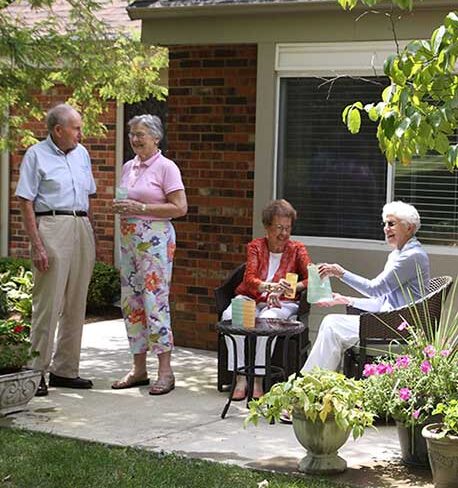One of the biggest challenges adult children say they face when preparing to assist a parent who is downsizing to a condo or senior living community is what to do with all of the items their loved one no longer needs. Because this generation of older adults has often lived in the same house for many decades, they have usually accumulated a lot of possessions. While much of it might be in good condition, they won’t need it in their next chapter of life.
Here’s some advice that may help you re-home your parent’s no longer needed treasures and household belongings.
Downsizing Before A Move
- Create a list: Start by creating a list of the larger or more valuable belongings your parent won’t need or have space for after their move. Then talk about each one. Is it valuable or does it have sentimental value?
- Online sales: Are there items you could sell to help finance your family member’s move? If so, is it worth hosting an in-person estate sale or garage sale? While they can be a lot of work, they can also be very profitable if the senior has a considerable amount of quality items to sell. Some families have found eBay or local Facebook Marketplace to be faster and easier than in-person sales. (Be sure to read the safety tips for buying and selling online first.)
- Family members: There will likely be treasures your senior loved one doesn’t want to sell but won’t have room for in their new apartment or condo. Think about which family members might enjoy them. Keep in mind, younger members of the family may not have space for furniture or other larger possessions. Smaller sentimental items might be more appropriate for them.
- Religious organization: Seniors who have been active in a local church or synagogue may be interested in donating furniture or other items to that organization. Some host sales to raise funds to help the community with various causes, while others can use furniture in their common areas or schools if they have one.
- Local charities: Explore the local charitable organizations near you to see which ones accept donations. Some like Goodwill, Habitat for Humanity, and Salvation Army routinely accept household items that they can sell in their stores to help finance their mission. Local homeless shelters and women’s shelters often seek donations of household belongings, clothing, and personal care items. Some charities even offer pick-up services if you don’t have an ability to transport those items to the charity’s office.
Our final tip is one that might help if your family member isn’t willing to part with some items or if the idea of doing so is causing them unnecessary stress. Find a local storage unit you can rent. Agree that any items that haven’t been used in the next year will be donated or otherwise relocated. This might make the transition a little less emotional for your senior loved one.
For more advice on preparing a parent or other family elder for a transition, visit “6 Tips for Helping a Senior Downsize Before a Move.”

